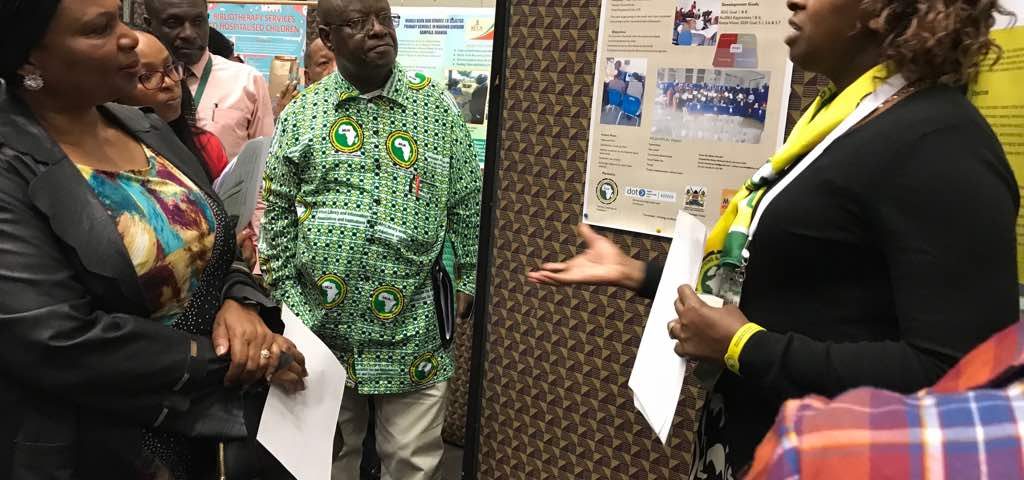Libraries as youth empowerment centres

Published: January 24, 2020
by Miriam W. Mureithi
An AfLIA Leadership Academy Cohort 1 project
Unemployment is a global challenge but Africa appears to have a large swathe of unemployed youths. Deficiency in certain skill-sets caused by the gap between the curricula of African schools and what 21st century employers of labour need is one of the core reasons for high unemployment rates on the continent of Africa. A study conducted in 2017 by Brookings Institute on “Increasing employment opportunities: Navigating Africa’s complex job market” identified that information literacy skills, problem solving skills and Information Technology are the critical areas that young people in Africa need in order to increase their employability quotient.
Miriam Mureithi, is another AfLIA Leadership Academy participant. She is a principal librarian at Kenya National Library Services, Thika Branch. After gaining the understanding that the community should be the primary focus of public libraries, not just the books on the shelves, Miriam together with her team of librarians at Thika Branch – knls, embarked on a mission to empower the youths of her community by closing the gap in their Information Technology and entrepreneurial skills. Thus, enhancing their employability. Aside training on IT and entrepreneurial skills, the Library also started helping the young people in the community without basic certificates to learn how to read and write, manage a business successfully as well as gain basic financial literacy. The Library identified and collaborated with Digital Opportunity Trust (dot) Kenya, the Ministry of Education, Science and Technology and Trace Shield to help achieve its aim. The Ministry of Education, Directorate of Adult Education provided resource persons to train youth on different computer packages as well as for Adult Literacy. Digital Opportunity Trust (dot) Kenya, an NGO, also provided a trainer for entrepreneurial skills. Trace Shield, on the other hand, supplied all the printed materials for the training sessions. The Ministry of Youth was equally engaged to help fix up the young people whenever opportunities crop up.
The confidence and passion ignited in Miriam at the AfLIA Leadership Academy Convening in Kenya is propelling her to reach out to assert herself in confidence and to serve Thika community more. Currently, more than 100 youths have been trained by the Library.


Empowerment of young people through increasing their employability quotient is a developmental activity. Sustainable Development Goal 8 highlights the promotion of “sustained, inclusive and sustainable economic growth, full and productive employment and decent work for all’. Miriam’s project drives the attainment of Goal 8, Target 6 which seeks to substantially reduce by 2030 “the proportion of youth not in employment, education or training”. The sole indicator for achieving this Target is decreasing ‘Proportion of youth (aged 15–24 years) not in education, employment or training’. The project also addresses the AU 2063 Agenda Aspiration 1 and the Priority Area of ‘Incomes, jobs and decent work’. The project also supports The Social Pillar of Kenya 2030 Vision which dwells on ‘Investing in the People of Kenya’.

